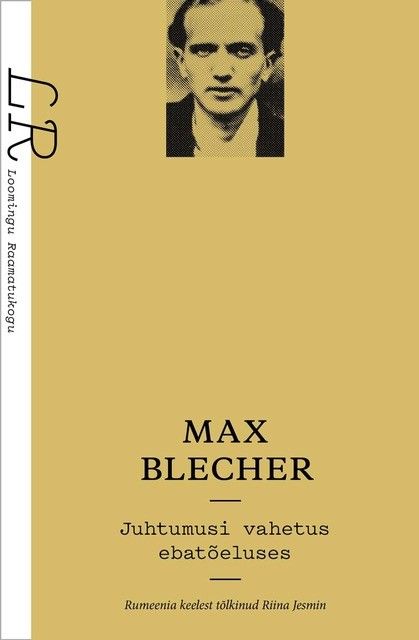What do you think?
Rate this book


88 pages, Unknown Binding
First published January 1, 1936
Fire purifies all. I always had a box of matches in my pocket, and when I felt particularly sad I would light a match and pass my hands through the flame, first one, then the other.
All this bespoke a melancholy of existence, a kind of normally organized torture in the course of my life as a child.
Objects, on the whole, I perceived as backdrops. The notion of the world as stage accompanied me everywhere: life seemed to unfold in the midst of some sad, artificial performance. Indeed, the only way out of the tedious vision of a lackluster world was to see it as theater, bombastic and passé.
Summer had filled the park, trees, and air with a chaos reminiscent of a madman’s drawing, its hot, heavy breath monstrously swelling the already thick, exuberant foliage. The park seemed to be flowing, like a lava bed, its every stone red hot…
In the park I would trail women I did not know, following at their heels until they arrived home…
All at once the surfaces of things surrounding me took to shimmering strangely or turning vaguely opaque like curtains, which when lit from behind go from opaque to transparent and give a room a sudden depth. But there was nothing to light these objects from behind, and they remained sealed by their density, which only rarely dissipated enough to let their true meaning shine through.As Andrei Codrescu writes in his introduction, what thus flows from Blecher's pen is not so much Surrealism as it is 'hyperrealism' (which I find even more interesting, though also much rarer). There are no flights of fancy beyond reality; there is instead total immersion in an over-exposed reality enhanced by the protagonist's unique point of view. There is the discovery of places in the everyday world imbued with a special significance, offering refuge from the the heavy burden of sickness and the overwhelming weight of mere existence.
Above the room there were two garrets, one of which gave access to the roof via a small window. I often climbed through it and stood on top of of the house. The entire city spread out before me, amorphous and gray, and beyond it the fields, where miniature toylike trains crossed a fragile bridge. What I wanted most of all was to feel free of vertigo, as stable as if my feet were planted on the ground; I wanted to lead my 'normal life' on the roof, to move about in the fresh, bracing air of the heights without fear or awareness of the void. I felt that if I succeeded I would make my body lighter and more supple and, thus transformed, I would have turned into a kind of bird-man.Blecher's protagonist explores many such hidden places during his 'adventures', feeling drawn to them as inevitably as iron filings are pulled to a magnet. Not all of them offer succor; yet even the bleakest ones, those known as a 'cursed space', still beckon to him.
One of the spaces was in the town park in a small clearing at the end of a tree-lined path no one used anymore. The only gap in the dogrose and acacia bushes surrounding it opened onto a desolate piece of wasteland. There was no sadder or more forsaken place on earth. Silence lay heavy on the dusty leaves in the stagnant summer heat. From time to time the echoes of the bugles of a regiment filtered through long-drawn-out cries in the wilderness, heartbreakingly sad. Far off the air baked by the sun quivered vaporously like the transparent steam hovering over a boiling liquid.I could go on, transcribing more and more evocative passages from this brief yet incredibly dense work that so gracefully traces an ornate border encircling the ineffable. But I have sauntering of my own to do, so I will instead encourage you to read it for yourself if you have not already done so.
It was a wild, isolated spot, as lonely as could be. The heat of the day felt more enervating there, the air i breathed more dense. The dusty bushes blazed yellow in the sun in an atmosphere of utter solitude. A bizarre feeling of futility hovered over the clearing, which existed 'somewhere on earth', a place where I myself would end up quite by chance on a summer afternoon with no rhyme or reason of its own, an afternoon that had lost its chaotic way in the heat of the sun amidst bushes fixed in space 'somewhere on earth'. At that time I felt more deeply and painfully that I had nothing to do in this world, nothing to do but saunter through parks, through dusty clearings burnt by the sun, desolate and wild. But the saunter would turn into a heart-rending experience.